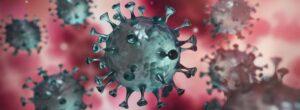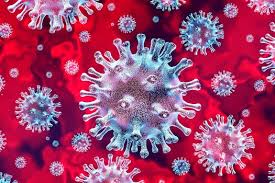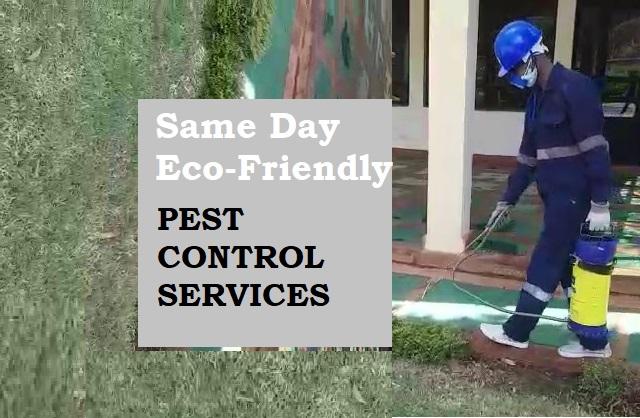COVID-19 FUMIGATION & DISIGNFECTION SERVICES.
The COVID-19 pandemic has had a devastating impact on Kenya, with more than 250,000 confirmed cases and over 5,000 deaths reported as of August 2021. In response to this crisis, the government and private entities in Kenya have implemented various measures to prevent the spread of the virus, including regular fumigation and disinfection of public spaces.
These measures have played a crucial role in preventing the transmission of COVID-19 and ensuring the safety of the public. In this article, we’ll explore the details of COVID-19 fumigation and disinfection in Kenya, including the methods used, the challenges faced, and best practices for effective fumigation and disinfection.
Introduction to Covid-19 Fumigation and Disinfection in Kenya.
Amid the Covid-19 pandemic, it has become evident that there is a dire need for measures to prevent the spread of the virus. Fumigation and disinfection have been identified as essential practices for keeping our living and working spaces free from the virus. In Kenya, individuals and entities have taken up the responsibility of fumigating and disinfecting public spaces to prevent the spread of Covid-19.
And the good news is that they have chosen PEST FLASH as their remedy covid-19 disinfection company. Contacting our Experts guarantees you of getting effective Office Fumigation & disinfection services.

Overview of the Covid-19 Pandemic in Kenya
Kenya has not been spared by the Covid-19 pandemic. The first case of Covid-19 was announced on 13th March 2020, and since then, the number of confirmed cases has risen to over 200,000. The government has implemented various measures such as lockdowns, curfews, and the vaccination programme to curb the spread of the virus.
What is Covid-19 Fumigation and Disinfection?
Covid-19 fumigation and disinfection involve the use of chemicals, ultraviolet light, and other non-chemical methods to eliminate or reduce the spread of the virus. The process entails cleaning and sanitizing surfaces, objects, and areas where people gather, such as offices, schools, churches, and malls.
Understanding the Importance of Regular Covid-19 Fumigation and Disinfection
The Importance of Covid-19 Fumigation and Disinfection in Preventing the Spread of the Virus
Covid-19 fumigation and disinfection help to prevent the spread of the virus by eliminating or reducing the number of virus particles on surfaces and objects that people frequently come into contact with. This way, the virus is not transferred from one individual to another through touch.
Benefits of Regular Covid-19 Fumigation and Disinfection
Regular Covid-19 fumigation and disinfection have numerous benefits. It helps to protect individuals from getting infected and reduces the burden on the healthcare system. It also ensures that businesses and schools can operate safely, thus reducing the impact of the pandemic on the economy and education.
Covid-19 Fumigation and Disinfection Methods Used in Kenya
Chemical-based Fumigation and Disinfection
Chemical-based fumigation and disinfection involve the use of chemicals such as chlorine, hydrogen peroxide, and quaternary ammonia compounds to eliminate the virus on surfaces and objects. These chemicals are effective in killing the virus but require proper handling and application to avoid harm to humans.
Non-chemical-based Fumigation and Disinfection
Non-chemical-based fumigation and disinfection methods involve the use of ultraviolet light and ozone gas, which are effective in killing the virus without using harmful chemicals. These methods, however, require specialized equipment and personnel to operate.
Hygiene Protocols Followed During Covid-19 Fumigation and Disinfection
During Covid-19 fumigation and disinfection, hygiene protocols are followed to ensure that the process is safe and effective. These protocols include wearing personal protective equipment, proper handling and disposal of chemicals, and avoiding cross-contamination.

The Role of Government and Private Entities in Covid-19 Fumigation and Disinfection
Government Initiatives for Covid-19 Fumigation and Disinfection
The Kenyan government has taken up the initiative to fumigate and disinfect public spaces such as markets, bus terminals, and government offices. In addition, the government has provided guidelines and protocols for private entities to follow during the fumigation and disinfection process.
Private Sector Involvement in Covid-19 Fumigation and Disinfection
Private entities such as cleaning companies and building management have taken up the responsibility of fumigating and disinfecting private spaces such as offices, schools, and residential buildings. These entities have invested in specialized equipment and trained personnel to offer effective fumigation and disinfection services.
Challenges Faced in Covid-19 Fumigation and Disinfection in Kenya.
As the Covid-19 pandemic continues to ravage the world, the need for effective and consistent fumigation and disinfection measures has become more critical than ever. However, Kenya, like many other countries, is facing numerous challenges in ensuring that the virus is contained. Some of the obstacles that continue to hamper the fight against Covid-19 in Kenya include:
Lack of Adequate Resources for Covid-19 Fumigation and Disinfection
One of the main challenges facing the effective fumigation and disinfection of public spaces in Kenya is a lack of adequate resources. The government has been grappling with budget cuts and other financial constraints, which have affected the provision of essential services, including fumigation and disinfection services.
This has led to a situation where many public places, such as markets, bus stops, and public toilets, remain unclean and susceptible to the spread of the virus.
Resistance to Covid-19 Fumigation and Disinfection Measures
Another challenge to the successful implementation of fumigation and disinfection measures in Kenya is resistance from the public. Many people are skeptical about the effectiveness of these measures, and some have even opposed them outright. This has been fueled by misinformation and rumors about the safety of the chemicals used in fumigation and disinfection.
Best Practices for Covid-19 Fumigation and Disinfection in Kenya
Despite the challenges, there are several best practices that can be adopted to ensure that fumigation and disinfection efforts are successful in Kenya. These include:
Safe and Effective Covid-19 Fumigation and Disinfection Techniques
Ensuring that the fumigation and disinfection techniques used are both safe and effective is essential in the fight against Covid-19. This means selecting appropriate chemicals, using the right equipment, and ensuring that the chemicals are mixed and applied correctly.

Recommended Frequency of Covid-19 Fumigation and Disinfection
The recommended frequency of fumigation and disinfection is another critical factor in ensuring their success. Public spaces that are frequently used, such as markets and bus stops, should be fumigated daily, while less frequently used spaces can be fumigated on a weekly or monthly basis.
Proper Handling and Disposal of Chemicals Used in Covid-19 Fumigation and Disinfection
Proper handling and disposal of the chemicals used in fumigation and disinfection are essential to avoid contamination and potential health hazards. It is necessary to ensure that the chemicals are stored correctly and that all safety measures are taken during the application and disposal processes.
Impact of Covid-19 Fumigation and Disinfection on Public Health in Kenya
The impact of Covid-19 fumigation and disinfection on public health in Kenya cannot be overstated. Effective measures will not only help to contain the virus but also improve overall public health by reducing the spread of other infectious diseases. It is crucial to continue investing in these efforts to ensure a healthier and safer future for all Kenyans. In conclusion, COVID-19 fumigation and disinfection is an essential public health measures that Kenya has adopted to contain the spread of the virus.
While it comes with a range of challenges, the benefits of regular fumigation and disinfection cannot be overemphasized. It is crucial that the government and private entities continue to invest in safe and effective fumigation and disinfection techniques to help curb the spread of COVID-19. By working together and following best practices, we can help keep each other safe and healthy during these unprecedented times.
FAQs
Is Covid-19 fumigation and disinfection mandatory in Kenya?
There is no national mandate requiring the fumigation and disinfection of public spaces in Kenya. However, some local governments and private entities have taken it upon themselves to implement regular fumigation and disinfection measures to prevent the spread of COVID-19.
Is fumigation and disinfection safe for humans?
Yes, if done correctly, fumigation and disinfection are safe for humans. However, it is crucial to follow proper handling and disposal procedures for chemicals used in fumigation and disinfection to prevent any health-related risks.
How often should fumigation and disinfection be done?
The frequency of fumigation and disinfection depends on the level of risk and use of the space. High-risk areas such as hospitals and clinics may require more frequent fumigation and disinfection, while low-risk areas such as offices and schools may require less frequent fumigation.
What chemicals are used in Covid-19 fumigation and disinfection?
There are different types of chemicals used in fumigation and disinfection, including quaternary ammonium compounds, sodium hypochlorite, and hydrogen peroxide. The choice of chemical used depends on the type of surface to be disinfected and the level of effectiveness required.
Are there Covid-19 Fumigation Companies in Kenya or Covid Fumigation Services Near Me?
The answer is simply yes. There are a couple of Covid-19 fumigation companies in Nairobi Kenya and Always Near You. We’re among the best covid disinfection companies in Nairobi. Our team of professionals is dedicated to providing the highest quality services for Covid Disinfection so that you and your family can stay safe and secure from the virus. We use the latest technology and products to ensure that your premises are thoroughly disinfected.
Our services include fogging, electrostatic spraying, and ULV fogging. We also provide regular maintenance services to help keep your premises safe from Coronavirus. Contact us today for more information about our Covid Disinfection Services in Kenya.
Covid 19 fumigation Services Control Measures
- Use tissue while sneezing
- Avoid Traveling
- Stay At Home
- Use a mask if you go out
- Wash your hands frequently with soap
- Avoid Crowd
- Be Safe.
Host No More Worries, In case you fall into any worry, Contact the Free Toll Number Issued by the Ministry of Health. Follow WHO World Health Regulatory Measures as well as the Measures given by the Ministry of Health in Kenya

